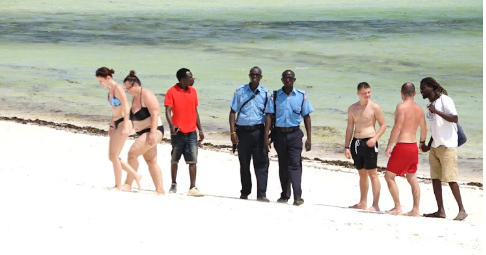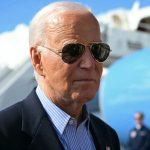Tourism and Wildlife Cabinet Secretary Alfred Mutua has warned that the ongoing nationwide anti-government protests are threatening to significantly reduce tourism earnings, potentially leading to job losses in the sector.
The Meetings, Incentives Travel Conferences and Exhibitions (MICE) segment has already been impacted, with several major events being postponed. These events include the Intergovernmental Standing Committee on Shipping (ISCOS) Assembly of Ministers, Ushirika Day Celebration, Technical University-TRI Project Finding Validation Workshop, Young African Leadership Initiative (YALI) Alumni Trade Fair and Expo, and Halal Event Brite.
Originally scheduled to take place at the Kenyatta International Convention Centre (KICC), these events have now been “rescheduled to future dates.” Additionally, there have been some cancellations of bookings by the international market, though in low numbers, affecting the leisure and holiday segment.
“We are lucky that we have not seen a major dent or cancellation as a result of what has been happening. However, if the unsettledness continues, it will hurt the sector leading to a reduction in our earnings, possibility of loss of jobs, and freezing of new opportunities,” Mutua said.
The ongoing situation could potentially derail Kenya’s growth plans and the target of achieving 2.2 million international arrivals for the current financial year, with projected earnings of Sh359.1 billion. This target is an increase from the Sh352.5 billion recorded last year, which saw international arrivals rise to 1.96 million from 1.48 million in 2022, according to data from the Tourism Research Institute (TRI).
Earnings are expected to further increase to Sh396.1 billion next year. Kenya aims to reach 5.5 million international arrivals by 2028, with an ambitious plan that involves significant private sector participation, especially in marketing destinations. The country’s best year remains 2019, with 2.04 million visitors.
“We have experienced a few postponements of bookings mainly for events, but we are also receiving new bookings. Our upward trends may have been slightly slowed, but the sector is stable, and we are prepared for the ongoing high season,” Mutua stated, urging an end to the current “unsettledness.” He emphasized that tourism is a leisure industry reliant on a sense of security and predictability.
“Kenya is one of many nations competing for tourism and visitors will choose to come to us depending on how we present and market ourselves to them. Image is important if we are to maximize on our amazing product,” he said.
The tourism and wildlife sector is one of the largest employers in Kenya, with 80 percent of its employees being youth. Mutua’s warning follows a week after hoteliers in the country also called for calm, highlighting that violent protests pose a threat to the industry.
According to the Kenya Association of Hotelkeepers and Caterers (KAHC), hotels have reported cancellation requests from both international and domestic markets due to the ongoing demonstrations across the country.
Despite President William Ruto’s decision to withdraw the contentious Finance Bill 2024, the protests have continued this week. KAHC Chief Executive Mike Macharia noted that protests have traditionally harmed tourism and urged Kenyans to end the demonstrations, as international source markets are becoming increasingly wary.
“By and large the business is going on well though we have received requests for cancellations. We are urging our clients to continue with their visits,” Macharia said.
Last year, Kenya’s top five sources of tourists were the US with 265,307 arrivals, Uganda with 201,620, Tanzania with 157,818, the United Kingdom with 156,701, India with 94,273, and Germany with 77,907. The majority, or 45%, amounting to 875,272 visitors, were in the country for holiday or leisure. This was followed by those visiting friends and relatives, totaling 465,851, while business and conference visitors numbered 461,042.
Although the US remains the top source of tourists, European markets are also crucial for Kenya’s tourism industry. Key European sources include the UK, Germany, Italy, France, the Netherlands, Spain, Poland, Sweden, Norway, and Belgium. The government has assured tourists that the country is safe, maintaining Kenya’s reputation as a leading safari and beach destination.



